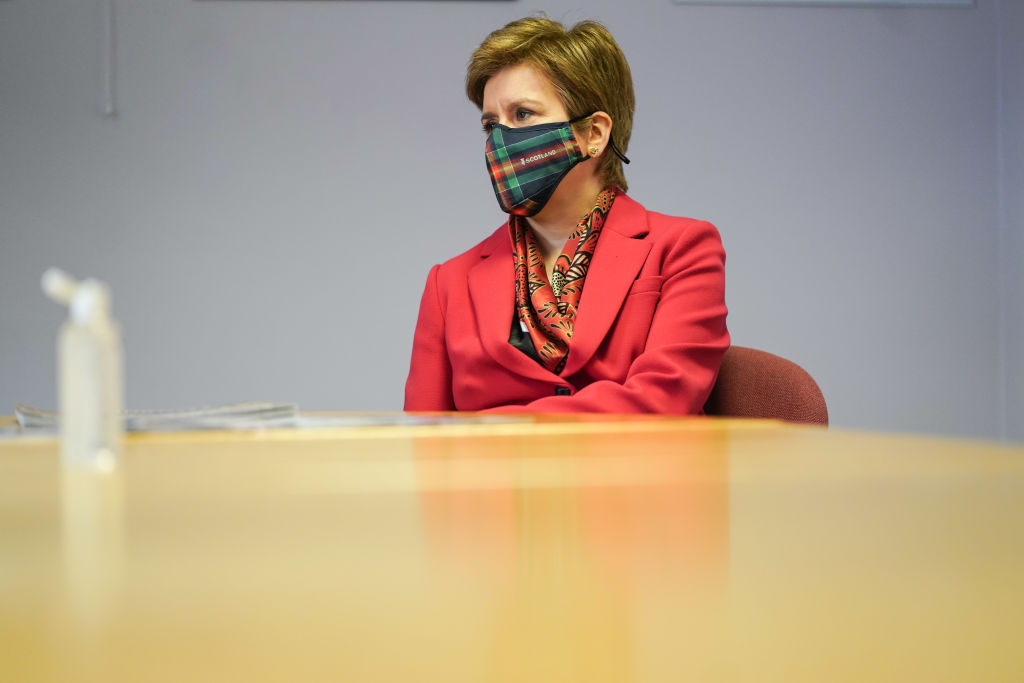It will no doubt be referred to in Whitehall circles in future as the ‘Jason Leitch protocol’. Scotland’s clinical director appears to have escaped scrutiny by the UK Covid Inquiry. It was revealed last night that his WhatsApp messages sent during the pandemic were deleted at the end of each day. The Scottish government have this afternoon denied this, saying that it was not correct to say that Professor Leitch deletes his Whatsapp messages and that guidance had been followed. But this does not change the fact that by the time the ‘do not destroy’ notice was issued by the Inquiry, Leitch’s messages were already gone.
First Minister Humza Yousaf has also failed to furnish the UK Covid Inquiry with any WhatsApp messages, much to the disappointment of Jamie Dawson KC, the lead counsel to the inquiry. This is despite it being revealed that several cabinet ministers used the platform to discuss government business during the pandemic. Yet the Scottish government say that ‘it is not the culture’ within government ‘to use WhatsApp for decision making’, as if electronic messaging is somehow alien to Scottish national identity. They have indicated more messages do exist but won’t be handed over voluntarily however, owing to them containing personal information.
It may mean we’ll never know what Scottish ministers and civil servants were really thinking about crucial issues during the pandemic.
Brilliant. Why didn’t Boris Johnson think of that? Sorry, mate: not our culture. Just the official record available. If only the cabinet secretary Simon Case had deleted or refused to hand over his messages we might never have known he thought the government was a‘terrible, tragic joke’ or that the ‘real person in charge’ was the PM’s wife Carrie. Nor would we have learned that the health secretary Matt Hancock had wanted to ‘scare the pants off’ the public. Indeed, the partygate scandal might never have led to Boris Johnson’s resignation if officials had done a ‘Jason Leitch’ instead of recording it that No. 10 couldn’t find a coherent explanation for those lockdown parties.
Of course, the UK government did initially try to withhold WhatsApp messages revealing informal discussions between ministers during the pandemic. For this, Rishi Sunak was accused of lack of transparency by opposition politicians. It was Boris Johnson who insisted that he wanted full disclosure — and his political reputation was largely destroyed by what was revealed. It’s the curse of WhatsApp. Perhaps the Scottish government were worried about becoming a national joke.
‘All relevant’ documentation has been handed over, said Humza Yousaf at First Minister’s Questions — though he has asked the solicitor general to check that no messages have been missed. Yet Aamer Anwar, the solicitor representing the Scottish Covid Bereaved Group, said it is ‘blindingly obvious’ that the messages should have been kept due to their relevance to a public inquiry. Lawyers representing bereaved Scottish families say it is ‘inconceivable’ that Nicola Sturgeon and senior figures did not retain any electronic messages during the entire two years of the pandemic.
And given Yousaf and other ministers are known to have discussed government business on WhatsApp in the past, there is scepticism about what has come from the Scottish government so far. The UK Inquiry chairman, Baroness Hallett, has asked 70 individuals in Holyrood for access to chats while Dawson claims there is evidence that 137 message groups were set up during the pandemic.
The aversion to digital communication in the Scottish government seems to have come from the top. Nicola Sturgeon, we’re told, often did her business on the phone or person-to-person. Decisions were made verbally by a small group in St Andrew’s House. All that remains is the official record of decisions, written after the event by civil servants.
Destroying messages can be a criminal offence. And if that is what has been happening here, it may mean we’ll never know what Scottish ministers and civil servants were really thinking about crucial issues during the pandemic, such as the decanting of elderly patients from hospital wards without proper testing.
How did ministers respond to the scandal of deaths in care homes? Or about the closure of schools which Sturgeon had initially said wasn’t necessary? What discussions took place about face masks and their efficacy? WhatsApp messages suggested that Boris Johnson made masks compulsory in schools because he couldn’t face another row with Sturgeon.
The former First Minister has been widely praised for her handling of the pandemic — even though the death rate in Scotland was not much better than in the rest of the UK. We may never know if that praise was fully justified.







Comments